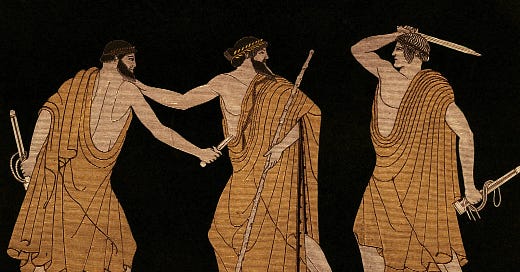We like to think of propaganda and media manipulation as an invention of the modern world—something that came about with the advent of newspapers and radio.
Although some people still live in the dark, most people today are acutely aware of the fact that the mainstream news distorts events. Most people who accept this would probably concede that this has happened for some time—at least the last hundred or so years.
A great modern account of this can be found in George Orwell’s book about his experiences in the Spanish Civil War, Homage to Catalonia. Shocking events he witnessed firsthand while fighting in the war were completely ignored by British newspapers; other trivial matters were exaggerated greatly, reported as harrowing bloodbaths. The events of the war were twisted to fit the English media’s agenda—each story was written with the intent to keep the public rooting for the side that the government wanted them to root for, and to make British soldiers out to be heroes.
Modern readers won’t be too shocked to discover this—of course the government-funded media lies about wars. However, this wasn’t always common knowledge. The whole reason why Orwell decided to fight in the war was because the media had led him to believe that it was something he should do, and when he found out how egregiously newspapers lie, this revelation was powerful enough to inspire a great deal of his writing.
Indeed, even people who are suspicious of news media would probably be surprised by how often information gets distorted, and how drastically. Plus, while it is easy to dismiss a new headline as bogus, once time passes and these headlines make their way into the historical record, they start to become easier to believe.
Carrying this information to its logical conclusion reveals that our entire historical record is riddled with bias and misinformation, and that the study of history is actually a frustrating type of detective work whose aim is to simply scrounge together a version of events as close to the ‘real’ truth as we can muster.
Where Orwell erred is in thinking that the dubious nature of history was in any way unique. He famously voices his concern in his essay “The Prevention of Literature,” saying, “known facts are suppressed and distorted to such an extent as to make it doubtful whether a true history of our times can ever be written.”
He’s correct—but this isn’t only the case for his times. In fact, the concept of “lies… getting out of the newspapers and into the history books” has been going on since before newspapers—and perhaps even before history books.
I assume this phenomenon can be traced back even further, but for our purposes, let’s travel to Ancient Greece in 514 B.C.
We all know that Greece in this time period was heralded as the birthplace of freedom and democracy. What you may not know is that for many years, the Greek people themselves traced the origins of their freedom and democracy to two ‘tyrant-slayers’—Harmodius and Aristogeiton—and their assassination of Hipparchus, a nobleman from the Pesistratid ruling family.
The assassination of Hipparchus became a kind of legend among the Greeks. The public lauded the event as the moment when their country became free of the Pesistratid family’s tyrannical rule, and the new era of government by the people was ushered in.
It’s an inspiring story of ordinary men standing up in the face of tyranny. There’s only one problem—the story is a lie.
The assassination of Hipparchus was not motivated by a desire to overthrow tyranny, but, instead, a deeply personal case of romantic jealousy. And tyrannical rule in Athens did not die with Hipparchus—in fact, the Pesistratids only became more ruthless after the murder, and held onto power for many more years.
Famed Athenian historian Thucydides wrote about this event; his book contains the true motive for the assassination (as well as a scathing condemnation of the untrustworthy nature of public opinion).
This sort of thing is foreign yet familiar; the events and the characters change, but the story stays basically the same. It’s as though history has a distinct ‘shape’—always cycling through the same events, the circumstances are novel but forever following the same laws.
Thus, ‘intellectuals’ are always forgetting and relearning the same truths—that the masses are usually wrong, that a triumphant story is much more palatable to the general public than the ugly truth, and that the only thing we can know for certain is that we know nothing at all.
Information about Greece was found in the book The School of History: Athens in the Age of Socrates, by Mark Munn. 




This was great. The story of Hipparchus and your commentary on it reminds me of the Boethian Wheel we spoke about a few weeks ago. History truly repeats itself, with different names filling in the same shoes…